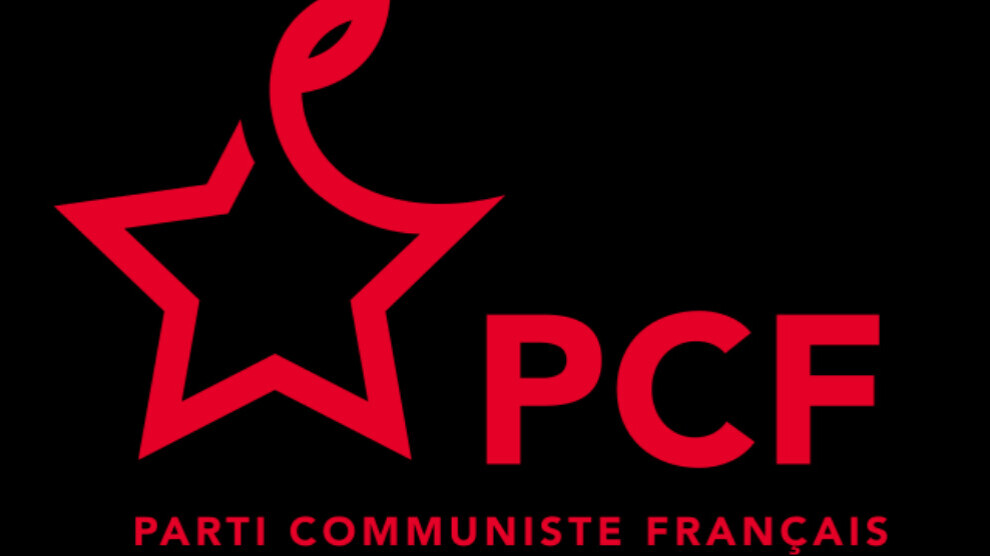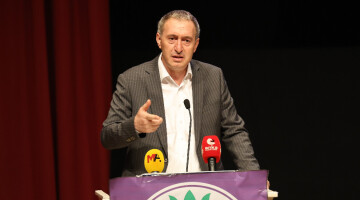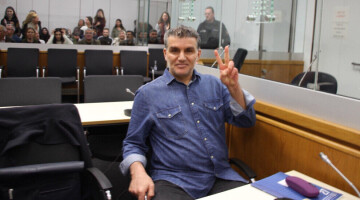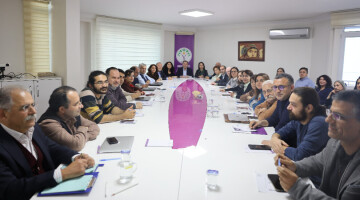The effects of the severe series of earthquakes in the Turkish-Syrian border region are dramatic. Tens of thousands of people lost their lives, and survivors are left with nothing. In Turkey alone, at least 13.5 million people are directly affected by the earthquakes. Nothing is the way it used to be. Only in government policy does everything remain the same. Long-time ruler Recep Tayyip Erdogan is in election campaign mode and continues his campaign against opposition parties even in the midst of the disaster.
The main focus is on the Peoples' Democratic Party (HDP), which is the subject of banning proceedings. The accusations are "links to terrorism". The charges are mainly based on posts by Selahattin Demirtaş, Pervin Buldan and Mithat Sancar on social media during the time of the peace process between the PKK and the Turkish state. From the tweets, the prosecution constructs a structural link between the HDP and the Kurdish liberation movement. In addition, there is also the so-called Kobanê trial, in which 108 people, including the former co-chair of the HDP, Selahattin Demirtaş, are to be sentenced to multiple life sentences over a call to protest against Turkey's ISIS support in the attack on Kobanê. A final decision in the ban case is expected to be made by the Turkish Constitutional Court in Ankara before the parliamentary and presidential elections, which are due to take place on 14 May. The oral hearing against HDP will begin on 14 March.
Internationally, there is sharp criticism of Erdogan's judiciary's plan to push the HDP off the political stage. The party has been under pressure for years. Thousands of its members, including former mayors and party leaders, are in prison on terror charges, and almost all the municipalities it won in the last local elections were usurped by the government through trustees.
The French Communist Party (PCF) released a statement calling on the Turkish government to immediately stop the proceedings to ban the HDP, accusing president Erdogan of having plunged Turkey into chaos and of destabilising the region through his aggressive policies.
“We strongly condemn the ban and assure the HDP of our full solidarity. Because it is committed to a democratic and diverse Turkey, fights with determination and creativity for the emancipation of women, social and ecological progress, freedom and the equality of all people - regardless of their ethnic and cultural background. This is nothing less than banning a democratic party with millions of votes and which is a major player in Turkish political life. The decision that will be taken can only be arbitrary and, in any case, violates the European Convention on Human Rights (ECHR). We demand, in accordance with the European Convention on Human Rights (ECHR), the annulment of the current proceedings, respect for the rule of law and freedom for all peoples of Turkey,” stated the PCF.
In Turkey, the closure of political parties, especially pro-Kurdish parties, is not historically exceptional. Yet there are several European Court of Human Rights (ECtHR) rulings against the country, including in the case of HADEP and HEP, which underline the fundamental role that parties play in a democracy and reprimand bans or dissolutions accordingly. The Court considers party bans to be an extreme measure, justified as a last resort only in very exceptional circumstances. These include, for example, a direct link between a political party and the criminal acts of a "terrorist organisation" that has been proven by an independent court. In accordance with the case law of the ECtHR, a party ban cannot be justified by the mere fact that this party is attempting to publicly debate the situation of a section of the population.












